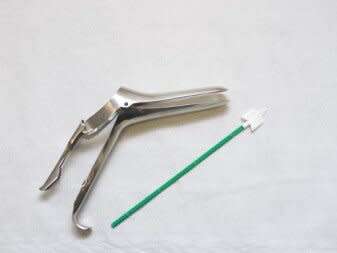New Recommendations Call for Less Frequent Pap Smears

Women between ages 21 and 65 should only receive Pap smear tests, which screen for abnormalities in the cervix, every 3-5 years, rather than every year. This is the message of two separate sets of recommendations released last week by the US Preventive Services Task Force and the American Cancer Society.
The new recommendation impacts not only women's health in general, but parents whose daughters have received the HPV vaccine against some types of cervical cancers. For one thing, the new recommendations suggest that girls begin receiving Pap tests at age 21, rather than age 18 as was previously the norm. Girls who received the HPV vaccine still need to receive Pap smears every 3-5 years, though.
While previous versions of the guidelines urged screenings every two or three years in women over 30, enough evidence has accumulated from recent studies to take a strong stance against yearly screenings in younger adults too. "Screening every three years is equally effective at finding cancers as annual screening, but it may be safer since it results in fewer false positive tests and fewer unnecessary treatments that could be harmful," said Dr. Wanda Nicholson, a professor of obstetrics and gynecology at the University of North Carolina School of Medicine in Chapel Hill, who served on the committee that wrote the task force's recommendations.
Women whose Pap smears are abnormal often undergo cervical biopsies, which can involve anxiety and discomfort. Repeated biopsies can weaken the cervix, raising the risk of miscarriages and premature births in women who later become pregnant. Reducing screenings from annually to every three years can cut the rate of biopsies in half, according to the American Cancer Society, without increasing the death rate from cervical cancer, which kills about 12,000 American women each year.
A similar rationale was used to determine that women should avoid screening until age 21. Many young women get HPV infections more frequently than the flu and these infections "tend to be transient and clear on their own without treatment," said Dr. Sarah Feldman, director of Brigham and Women's Hospital's Pap Smear Evaluation Center.
Image: Speculum with Pap smear swab, via Shutterstock.
